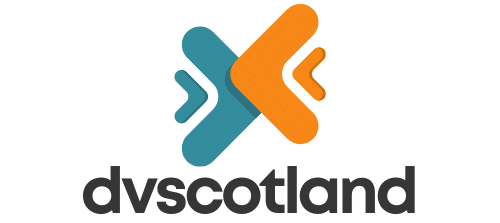What Are Innovative Approaches to Digital Marketing for Healthcare Services?

In the current era of digitalization where almost every industry is leveraging the power of digital marketing to reach its target audience, healthcare services are not far behind. However, the approach towards digital marketing in healthcare services is somewhat different. It requires a unique blend of innovative strategies that can engage the audience, build trust, and ultimately lead to the desired conversions. In this article, we will delve into some of the innovative approaches to digital marketing for healthcare services.
The Adoption of Content Marketing
Content marketing is no longer a novel concept in the world of digital marketing. However, its application in the healthcare industry is still evolving. The healthcare industry is known for its complex terminologies and procedures that can be quite daunting for the average patient. Therefore, it becomes crucial for healthcare services to adopt a content marketing strategy that simplifies this information for the patient.
Additional reading : How to Utilize Big Data in Personalizing B2B Customer Experiences?
This innovation in content marketing is more than just publishing articles or blog posts. It’s about creating valuable, educational, and engaging content that answers the questions of the patients and builds their trust in the healthcare provider. This can be achieved by creating videos that explain complex procedures, infographics that break down difficult terminologies, webinars that provide interactive sessions with health experts, or podcasts that discuss various health-related topics.
When implemented effectively, content marketing can immensely boost the online visibility of healthcare services, increase their website traffic, and enhance their reputation in the industry.
Also to discover : What Are the Latest Trends in AI-Assisted Project Management?
Embracing Social Media Platforms
Social media has become a powerful tool for businesses to reach their target audience, and healthcare services are no exception. The use of social media in healthcare digital marketing is not just about posting regular updates but also about creating a platform for interaction and engagement.
Healthcare services can utilize social media platforms like Facebook, Twitter, Instagram, LinkedIn, and YouTube to share health tips, announce new services, showcase patient testimonials, and engage with their audience through comments and messages. They can also leverage the power of live sessions on these platforms to host Q&A sessions, health talks by experts, or virtual tours of their facilities.
A major innovative approach to using social media in the healthcare industry is the utilization of user-generated content. This can be in the form of patients sharing their recovery stories, or employees showcasing their day-to-day work life. This type of content not only builds trust but also provides a more relatable and human aspect to the healthcare services.
Harnessing the Power of SEO
Search engine optimization (SEO) plays a vital role in the digital marketing strategy of any business, and healthcare services are no different. However, the approach towards SEO in healthcare services needs to be innovative to stand out in the highly competitive digital landscape.
One of the innovative approaches to SEO in healthcare services is the use of voice search optimization. With the advent of smart speakers and voice assistants, more and more individuals are using voice search to find information. Therefore, optimizing the healthcare website and content for voice search can help in reaching a broader audience and improving the website ranking on search engines.
Another innovative SEO approach in healthcare services is the use of local SEO. Since healthcare is a localized service, optimizing the website for local search can greatly improve the visibility in the local search results and drive more traffic to the website.
Utilizing the Potential of Email Marketing
Email marketing might seem like an outdated digital marketing strategy, but it still holds immense potential, especially for healthcare services. The key to successful email marketing in healthcare services lies in personalization and segmentation.
Personalization in email marketing refers to making the email content relevant and specific to the individual recipient. This can be achieved by using the recipient’s name, sending emails on special occasions like birthdays, or sending health tips based on their health condition or interests.
Segmentation, on the other hand, involves dividing the email recipients into different groups based on their demographics, behaviors, or preferences. This allows for sending more targeted and relevant emails, which can lead to higher engagement rates and better conversion rates.
Optimizing the User Experience
In the digital marketing landscape, user experience (UX) plays a crucial role in determining the success of any strategy, and healthcare services are no exception. The website or app of the healthcare services is often the first point of contact for the patients, and therefore, it needs to provide a seamless and intuitive user experience.
One of the innovative approaches to optimizing the user experience is the use of AI-powered chatbots. These chatbots can provide instant responses to the queries of the patients, book appointments, provide reminders for medication or appointments, and much more. This not only enhances the user experience but also saves significant time and resources for the healthcare services.
Another innovative approach to optimizing the user experience is the design of the website or app. It needs to be visually appealing, easy to navigate, and mobile-friendly. Additionally, the website or app should be accessible to individuals with disabilities, ensuring that the healthcare services are inclusive and available to everyone.
Innovative digital marketing strategies are the future of healthcare services. Through content marketing, social media, SEO, email marketing, and user experience optimization, healthcare services can effectively reach their target audience, build trust, and achieve their desired conversions.
Data-Driven Marketing Strategies
In the digital era, data has emerged as an invaluable resource for businesses across industries. For healthcare services, data-driven marketing strategies can significantly enhance the effectiveness of their digital marketing campaigns. The key lies in the systematic collection, analysis, and application of relevant data.
Starting with patient demographics, behaviors, and preferences, healthcare services can gather a wealth of data from various touchpoints such as website visits, social media interactions, and email responses. Advanced analytics tools can then be used to gain insights from this data, helping identify trends, patterns, and opportunities.
One innovative approach in this regard is predictive analytics, which uses historical data to forecast future outcomes. For instance, based on a patient’s past behavior, healthcare services can predict the likelihood of them needing a certain service or medication, and tailor their marketing messages accordingly.
Personalization is another crucial aspect of data-driven marketing. By understanding what resonates with different segments of their audience, healthcare services can deliver highly personalized content, offers, and experiences, thereby enhancing engagement and conversions.
Finally, data-driven marketing also facilitates performance tracking and measurement, enabling healthcare services to continually optimize their strategies based on what’s working and what’s not. This iterative process of learning and improvement is what makes data-driven marketing a truly innovative approach in the digital era.
Emerging Technologies and Trends
The landscape of digital marketing is ever-evolving, with new technologies and trends emerging at a rapid pace. For healthcare services to stay ahead of the curve, they must stay abreast of these developments and adapt their strategies accordingly.
Artificial Intelligence (AI) and Machine Learning (ML) are among the most transformative technologies in the realm of digital marketing. From predictive analytics to chatbots, AI and ML can automate and enhance various aspects of digital marketing, thereby delivering superior results. For instance, AI-powered content creation tools can generate engaging content at scale, while ML algorithms can optimize email marketing campaigns based on real-time feedback.
Augmented Reality (AR) and Virtual Reality (VR) are other emerging technologies that healthcare services can leverage. These can provide immersive experiences, such as virtual tours of healthcare facilities or interactive demonstrations of medical procedures, which can significantly enhance patient engagement and trust.
In terms of trends, the growing focus on privacy and data security is noteworthy. With stricter regulations and increasing consumer awareness, healthcare services must ensure their digital marketing practices are compliant and transparent. This not only safeguards patient data but also strengthens their reputation as a trusted healthcare provider.
Conclusion
Digital marketing is no longer a choice but a necessity for healthcare services in today’s digital-centric world. By embracing innovative approaches such as content marketing, social media engagement, SEO, email marketing, user experience optimization, data-driven strategies, and emerging technologies, healthcare services can significantly enhance their digital presence, engagement, and conversions.
However, it’s important to remember that digital marketing is not a one-size-fits-all solution. Each healthcare service has unique needs, goals, and audiences, and their digital marketing strategies must be tailored accordingly. Moreover, in an industry characterized by constant change and evolution, continuous learning and adaptation are crucial for success in digital marketing.
As the future unfolds, the role of digital marketing in healthcare services will only grow in significance. Those who can effectively leverage its potential will undoubtedly have a competitive edge in the increasingly digital healthcare landscape.
